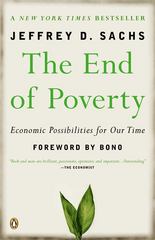Question
Question 1 (1 point) Suppose that there are three students in a class competing for a grade of A. The way the class is curved,
Question 1 (1 point)
Suppose that there are three students in a class competing for a grade of A. The way the class is curved, there is only one A is awarded in the class, and the other two students receive a C. An A is worth $10,000 in future lifetime earnings and a C is worth $0. Each player exerts some effort by studying. Studying carries a cost of $2,000 per day. Each player's probability of winning the prize is proportional to the effort exerted. For example, if student 1 studies twice as much as student 2, student 1 has twice the chance of getting an A as student 2.
Which of the following is true?
Question 1 options:
| There is no equilibrium to this game | |
| There is an equilibrium in which each student studies for one day | |
| There is an equilibrium in which each student studies for two days | |
| There is an equilibium in which students do not study at all. |
Question 2 (1 point)
In contest games like those described in Chapter 12, experiments show that people on average choose
Question 2 options:
| more effort than the equilibrium level | |
| about the same effort as the equilibrium | |
| less effort than the equilibrium level | |
| no effort at all |
Question 3 (1 point)
Suppose that 10 competitors are training for a track meet. Each day of training costs the competitors $200 in foregone earnings. The prize for winning the meet is $20,000. Players' probability of winning the meet is proportional to the amount they train, so that if person 1 trains for twice as many days as person 2, they have twice the change of winning.
There is an equilibrium in which all competitors train for
Question 3 options:
| 9 days | |
| 10 days | |
| 12 days | |
| 20 days |
Question 4 (1 point)
Refer to question #3. Based on the results from experiments, would you expect the average contestants to train
Question 4 options:
| Less than the equilibrium level? | |
| About at the equilibrium level? | |
| More than the equilibrium level? | |
| Not at all? |
Question 5 (1 point)
The US Federal Communications Commission has been auctioning off bandwith. The auctions have raised
Question 5 options:
| More than 1 trillion dollars | |
| More than 100 billion dollars | |
| Between 1 billion and 50 billion dollars | |
| 600 dollars |
Question 6 (1 point)
An increase in costs tends to
Question 6 options:
| raise the total amount spent on rent seeking | |
| lower the total amount spent on rent seeking | |
| not affect the total amount spent on rent seeking |
Step by Step Solution
There are 3 Steps involved in it
Step: 1

Get Instant Access to Expert-Tailored Solutions
See step-by-step solutions with expert insights and AI powered tools for academic success
Step: 2

Step: 3

Ace Your Homework with AI
Get the answers you need in no time with our AI-driven, step-by-step assistance
Get Started


